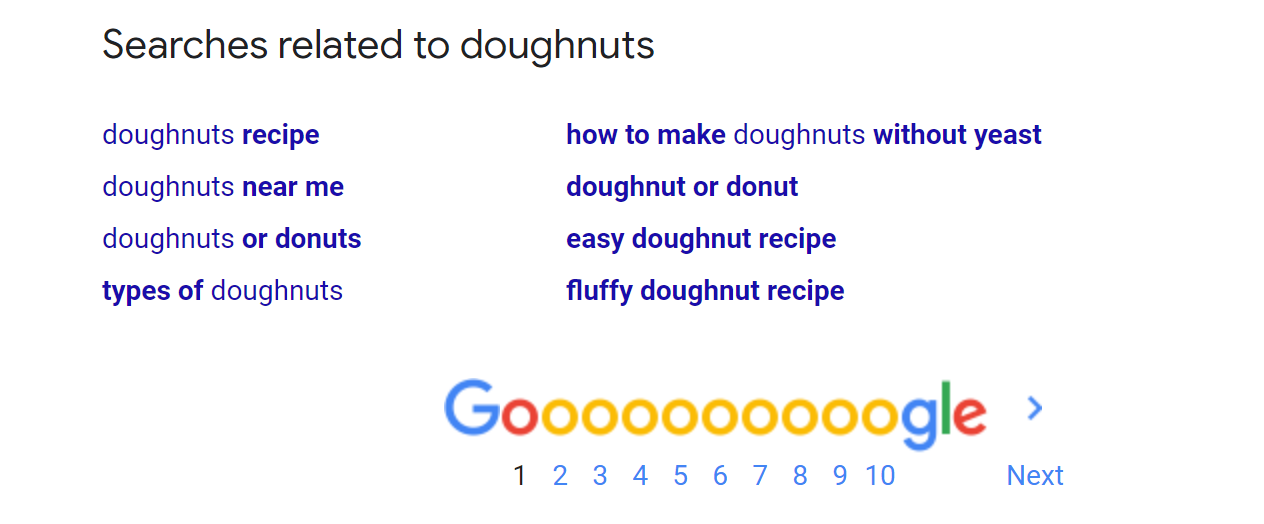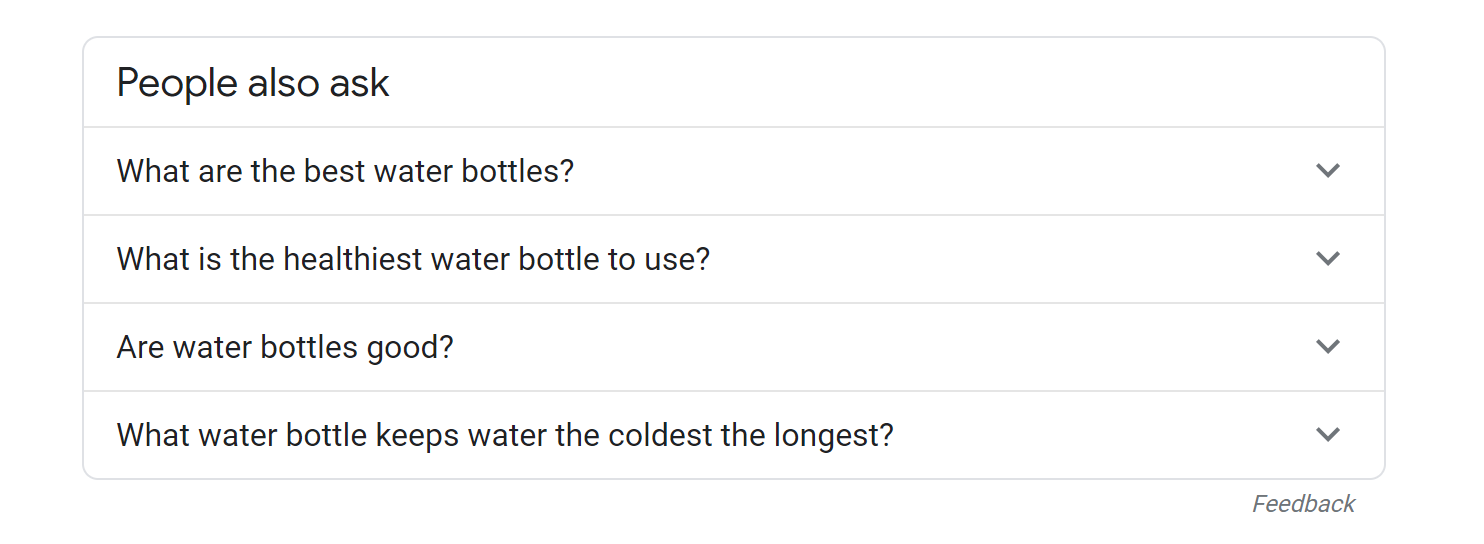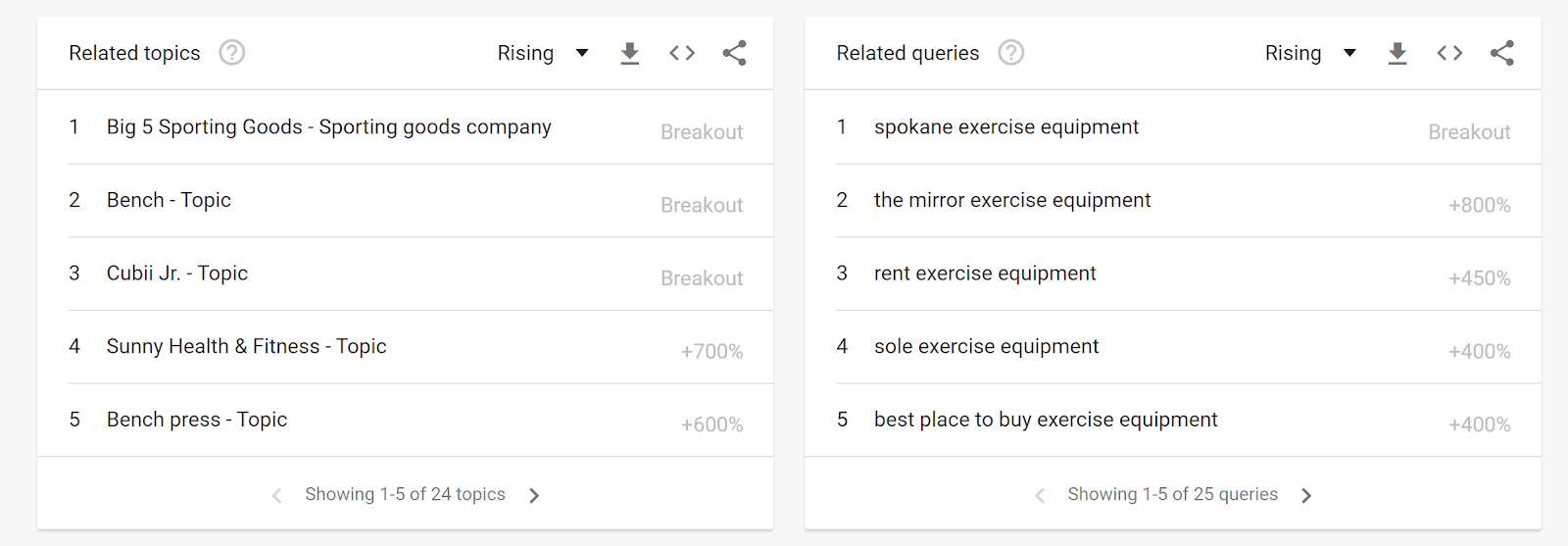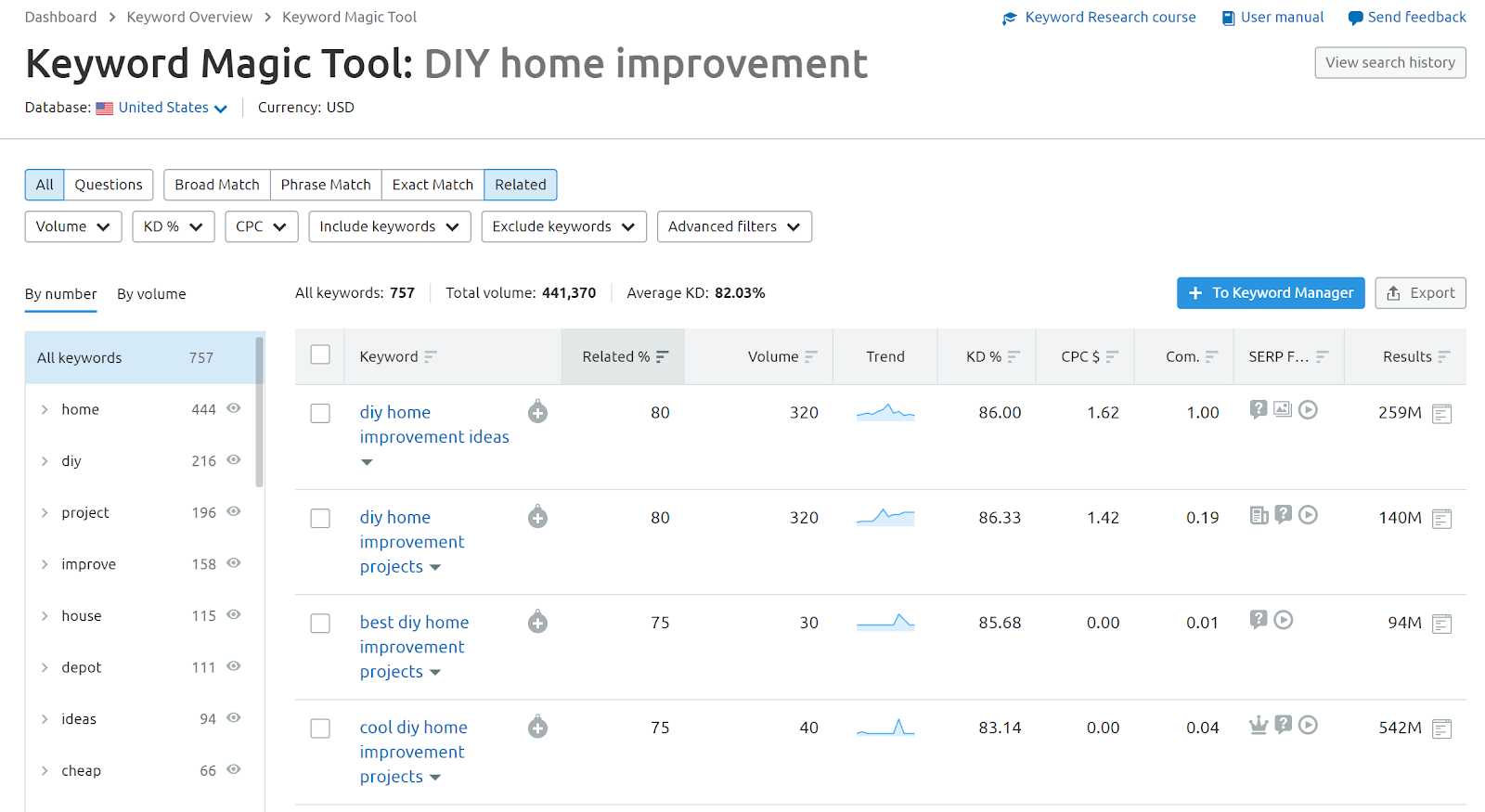When we speak about semantic keywords in relation to search engine optimization (SEO), we are talking about keywords that are conceptually related to the original keyword. For example, if we were to speak about “digital marketing,” a semantically related keyword might be “SERP” or “SEO.”
Finding semantic keywords through keyword research is a critical part of creating your SEO strategy. Semantic keywords are related closely to the original keyword, and thus they provide the search engine spiders with greater insight regarding the topic that the content discusses and the depth it provides. This information allows the search engine algorithm to rank the page more accurately.
Additionally, content developers need to remember that search engines want to see high-quality content that flows like natural language. While in the past, people often used strategies like keyword stuffing to make their content appear relevant, marketers now know that search engines watch keyword density closely and penalize those who engage in this spammy practice.
The algorithm prefers content that provides value and depth and sounds more natural, which is where semantic keywords come into play.
In this guide, we’ll break down the importance of semantic keywords, how it relates to latent semantic indexing, and how both can be used in an SEO strategy to improve content ranking:
Semantic Keywords: What You Need to Know How Do You Find Semantic Keywords? Google Related Search Suggestions Google Search Results Google Ads Tool Google Trends Social Monitoring Tools Semush’s Keyword Magic Tool Get More Insights Into Your SEOSemantic Keywords: What You Need to Know
Before 2013, search engines like Google looked for the frequency of keywords on a page to figure out what the content was about. This led to the practice of keyword stuffing to rank for specific keywords — meaning marketers would add the word “running shoes” on a page a bunch of times to rank for that keyword.
However, this all changed in 2013 with the introduction of Google Hummingbird. The algorithm transformed how search engines crawled content: Instead of looking for the frequency of a specific phrase, relevant results now needed to be more comprehensive in what words were included in the content.
Referring back to the query of “running shoes,” instead of having that keyword repeated throughout your content times, Hummingbird wants to see additional words like “training” or “athletic” that provide more context.
This is where semantics makes its way into an effective SEO strategy. Semrush defines semantic keywords as:
Semantically related keywords are simply words or phrases that are related to each other conceptually.
How Do You Find Semantic Keywords?
It can be difficult to brainstorm accurate lists of semantic keywords that will help boost your content marketing efforts. Fortunately, there are several strategies you can use to understand better the terms that will work best for your target keyword and the type of audience that you want to attract.
As you use these keyword research tools, check the metrics of the keywords you may include, such as search volume, to better appreciate how often your word appears in searches. This will help you make the best possible selections.
Google Related Search Suggestions
After a user searches on Google, the search engine will return a list of related searches at the bottom of the SERP.

This list includes common related words and ideas that could be related. However, Bill Slawski wrote about the results that appear on the bottom of SERPs in his piece about SEO myths:
I have also heard some people state that taking query suggestions that appear at the bottom of a set of SERPs for a query is also using “LSI Keywords” and again, that isn’t necessarily correct. Google has shown us that they will rewrite queries that people search for to show pages that they believe meet the situational or informational needs of a searcher with content that means substantially the same thing, and that is the idea behind Google’s Hummingbird.
However, there are benefits to seeing what people are searching for and the answers that Google provides.
You can use the “People also ask” feature toward the middle of the SERP. In this rich feature, Google attempts to pinpoint related questions that the user might ask.

Content developers and marketers can use these two features to learn more about the topics and terms that people might use related to their main keyword.
Google Search Results
Google also provides valuable information regarding the terms it views as semantic keywords in the search results. When Google returns search results, it attempts to help users see how each particular result relates to their original search query by bolding the search term in the meta description.
In addition to bolding the direct search term, Google also bolds any related terms that appear in the meta description. For example, the search term “how to start a day care” will bold the terms “child care” and “opening a day care” and the actual search terms. This can be used to collect a few additional keywords that Google pays attention to.
Google Ads Tool
The Keyword Planner that Google includes in Ads can also be an excellent resource for those looking to build their list of semantically related keywords.
When typing into the planner, people can learn about the popularity and search rates for the keywords they’re considering. Google also provides valuable help for those looking for keywords, such as offering suggestions based on particular industries.
The list of terms that Google returns on the planner can help identify semantic search keywords. Content developers can identify highly popular keywords and other common search terms related to them.
This helps marketers better understand the types of searches that customers are likely to make related to their particular industry.
Google Trends
Google Trends provides some helpful information for finding keywords. Using Trends, users can uncover patterns within the searches that people make. They can see if particular terms are trending up or down and the regions where they’re the most popular.
Trends also provides information about related searches and topics. For example, someone interested in creating content for exercise equipment may search for “exercise equipment” on Trends.
Beneath the graph that displays the latest information about the performance of the search term, they’ll see related searches, such as “rent exercise equipment” and “best place to buy exercise equipment.” They’ll also see related topics, such as “bench press,” listed in a different chart.
Altogether, these two lists provide valuable information about what people search for and what’s connected to the term “exercise equipment” on Google.

Social Monitoring Tools
Social monitoring tools can make it easy to track conversations that customers have about your industry through social media.
You can set up alerts that let you know when people discuss topics that you write about, and that can provide you with real-time discussions about the topic at hand. This can provide you with more ideas for semantic keywords.
You can also search for the keywords that you want to write about on popular platforms. The searches will help you find public posts about your topic. You can use these posts to find more semantic keywords and related topics that people in your industry discuss.
Semush’s Keyword Magic Tool
Semrush’s Keyword Magic Tool makes it easier to understand a wealth of applicable information for particular keywords. By uncovering information related to the search rates for a certain term and the network of topics related to that keyword, marketers can plan their campaigns.
The Keyword Magic Tool contains 142 geo databases and nearly 20 billion keywords, meaning users receive thorough and complete answers about the semantic keywords they want to find for their content.
These words can be sorted by various traits, such as volume, making it easier to find keywords that will fit a particular piece of content and the goal of the organization developing it.
The “related” keywords feature is a great way to find phrases that connect back directly to your core keyword.

Get More Insights Into Your SEO
When it comes to SEO, you need to create quality content that's well-optimized to see results. Understanding what search engines want to accomplish and how they rank websites can help you accomplish a great deal.
If you’re interested in learning more about how you can find relevant semantic keywords to incorporate into your material, consider giving the Keyword Magic Tool from Semrush a try. See how you can use this database for keyword research that will uncover the terms to help your content rise higher on the SERPs.
Innovative SEO services
SEO is a patience game; no secret there. We`ll work with you to develop a Search strategy focused on producing increased traffic rankings in as early as 3-months.
A proven Allinclusive. SEO services for measuring, executing, and optimizing for Search Engine success. We say what we do and do what we say.
Our company as Semrush Agency Partner has designed a search engine optimization service that is both ethical and result-driven. We use the latest tools, strategies, and trends to help you move up in the search engines for the right keywords to get noticed by the right audience.
Today, you can schedule a Discovery call with us about your company needs.
Source:





![How to Find Low-Competition Keywords with Semrush [Super Easy]](https://new.allinclusive.agency/uploads/images/how-to-find-low-competition-keywords-with-semrush-super-easy.svg)